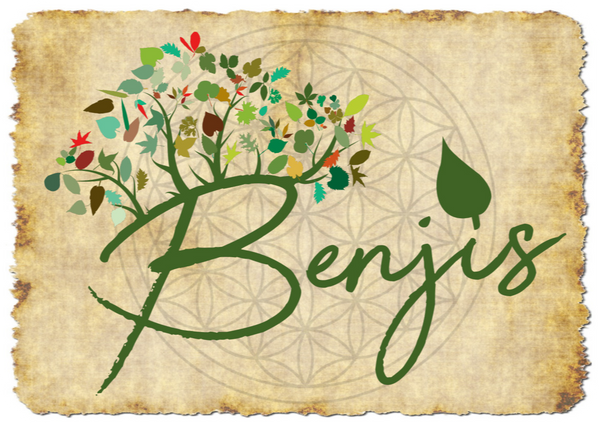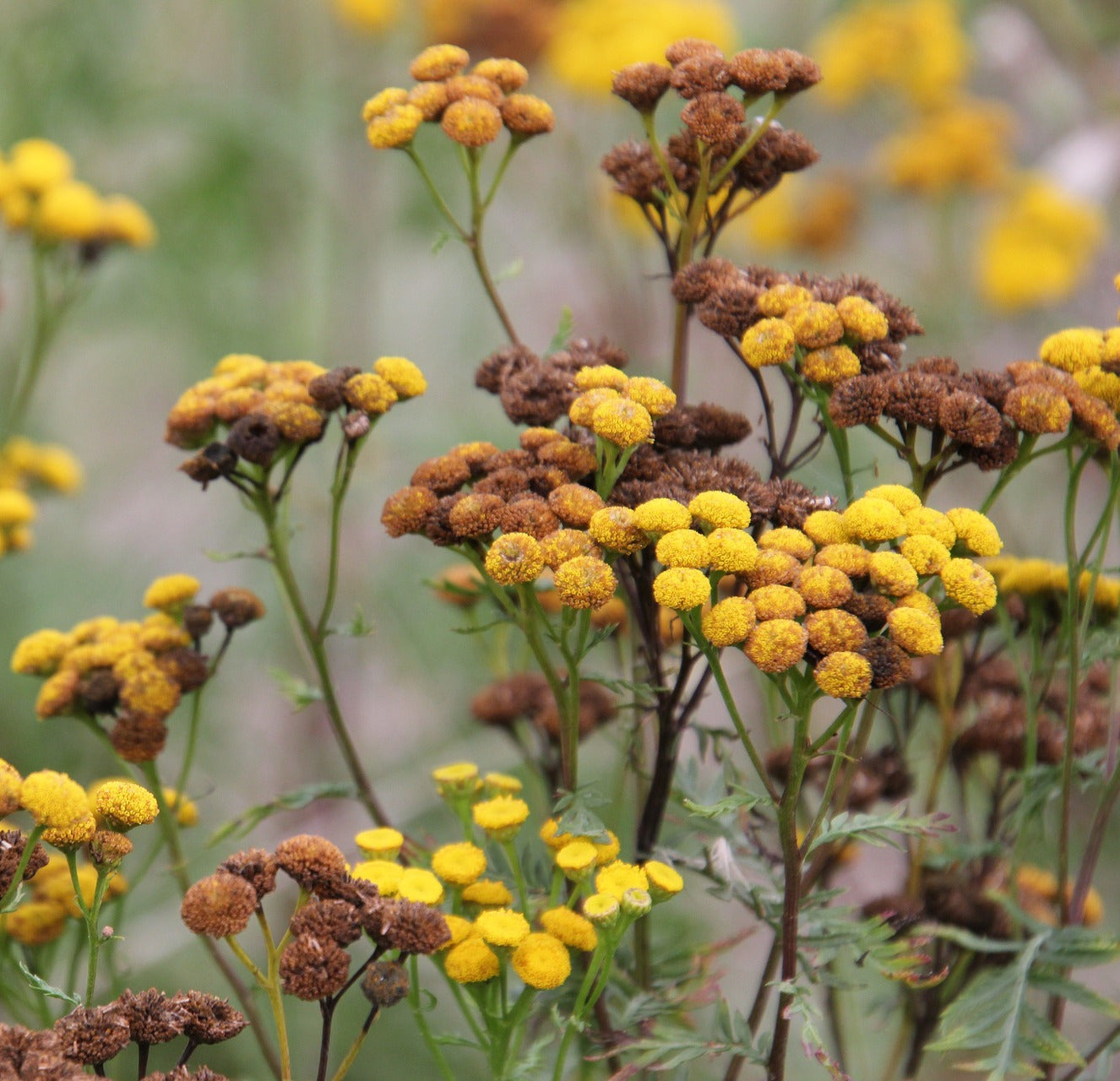Benjis seeds
Common Tansy [Tanacetum vulgare]
Common Tansy [Tanacetum vulgare]
Couldn't load pickup availability
Tips to reduce water requirements
Tips to reduce water requirements
We recommend mulching the beds
Experience has shown that by covering the ground, e.g. with Hay or straw, which can reduce evaporation by 80%. If you keep the beds evenly moist, an optimal moist microclimate will be created under the mulch. This not only promotes the growth of the plants, but also reduces water consumption enormously.
It is also recommended to always keep the beds moist , even if the bed is not used for a certain period of time
The drying out of the soil leads to a huge decline in the micro- and macro-organisms in the soil, which over time leads to an infertile soil . Tests have shown that the water content in the entire bed remains longer when the entire bed is watered over a longer period of time than when it is only watered selectively. Due to the small volume of the poured areas in contrast to the large dry volume, they dry out more quickly than if the entire volume of the bed is filled with moisture. Similar to heating in an apartment.
If the beds are not in use, we recommend sowing with green manure.
Maintaining an energy level always requires less energy than having to reach it again and again.
Shipping and pick-up information
Shipping and pick-up information
Shipping
We offer CTT shipping for Saagut Europe and USA far! With us you will always receive a tracking number to track your package. Shipping costs differ depending on the shipping region. Here is a list of regions and prices:
National Shipping
Portugal (with the Azores and Madeira Islands)
Envelope or package up to 500g = € 3.50
2 kg Bus Package = 8 €
Package over 2 kg = 16 €
Europe Shipping
Envelope up to 100g = 7 €
500g Bus Package = 9,50 €
1kg Bus Package = 14 €
2kg Bus Package = 20 €
Package over 2kg = 40 €
USA Shipping
Envelope up to 100g = € 7.50
500g Bus Package = 15,50 €
1 kg Bus Package = 24 €
2 kg Bus Package = 33,50 €
Package over 2 kg = 67 €
After you have completed your order with payment, you will receive a shipping confirmation email with your tracking number.
Abholung
You can pick up your order at any time from 12 noon to 8 pm or by appointment with us on site or at the markets we visit.
Simply enter the desired market to pick up in the comment box in the shopping cart.
You can find the markets in the menu on our website or at this link: https://www.benjis.net/pages/market-dates
The tansy is a very old, perennial wild perennial, dye and medicinal plant from Europe and Asia. The versatile medicinal herb has numerous bright yellow flower heads and finely pinnate, fernlike leaves. With a strong growth, it spreads quickly over foothills. Thanks to its essential oils, it gives off a distinctive, aromatic and spicy scent. The tansy can be used in a variety of ways, such as securing the slope, as an insect repellent or a broth fermented from it as a biological pesticide to keep whiteflies, lice, mites and other insects away. The plant likes to grow in moist to dry pastures and always stretches its leaves to the south, which is why it is also used to determine the direction of the compass.
Tansy is toxic. Skin reactions can be caused by contact. Pregnant women should avoid contact with tansy. Recommended for external use only.
It is an important host plant for some caterpillars, butterflies and beetles.
General information
Plant family: Asteraceae
Life Cycle: Perennial
Days to harvest: 150 days
Plant height approx.: 160 cm
Root Type: Deep Root
Nutrient requirements: Weak Eaters
Water Requirements: Means
Winter hardiness: Up to-30 °C
Location: Sunny
Floor: Permeable, moist, loamy, humus
PH: 5.5 to 7
Sowing and planting information
Germ Type: Light germ
Seed Depth: 0 cm
Optimal germination temperature: 15-18 °C
Germination time: 5-10 days
Planting, row spacing: 40x40 cm
Optimal mixed culture: Potatoes, cabbage, cucumbers, berry bushes
Unfavorable mixed culture: -
Subtropic climate (Mediterranean) (e. g. B. Portugal, Spain, Italy)
Sow directly outdoors from February to June.
Moderate climate (e. g. B. Germany, Switzerland, Poland)
Sow directly into the frost-free open air from March to April.
General
Sow broadly and avoid waterlogging. Tansy Prefers a fully sunny location with sufficient water, permeable, loamy and humus soil. Prepare the soil for the herb with deposited animal manure. Avoid waterlogging.
Additional tips
Tansy sows itself generously. Nudibranchs avoid this herb. Tansy broth helps against snails, powdery mildew and lice . In order to quickly obtain a fine, crumbly and well-drained soil, an additional incorporation of biochar and primeval rock flour is recommended.
Type of propagation
Spread occurs via seeds.
Care Plants
Due to the initially slow growth of the plants, we recommend weeding the surrounding herbs regularly. M It animal manure prepared beds and planting in mixed culture, replaces additional fertilization.
Germination ability of seeds: 2-3 years
Other Names
Botanical Names: Tanacetum vulgare
English Names: Common tansy
German names: Rainfarn, Wurmkraut, Drusendrud, Kraftkrud, Milchkraut, Pompelblume, Regenfahn
Portuguese names: Tanásia
Spanish Names: Tanaceto
French names: Tanaisie
- Made in harmony with nature
- All seeds and seedlings are genetically stable for further propagation
- Our seeds are always checked for germination at regular intervals
Share
![Common Tansy [Tanacetum vulgare]](http://www.benjis.net/cdn/shop/files/Rainfarnwww.benjis.net.jpg?v=1697125811&width=1445)



